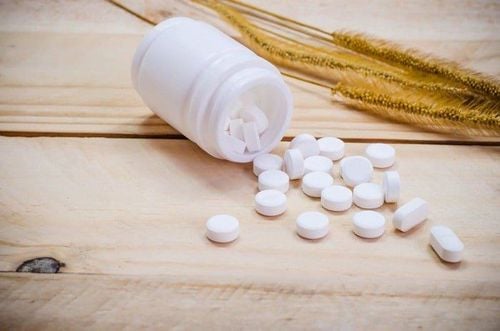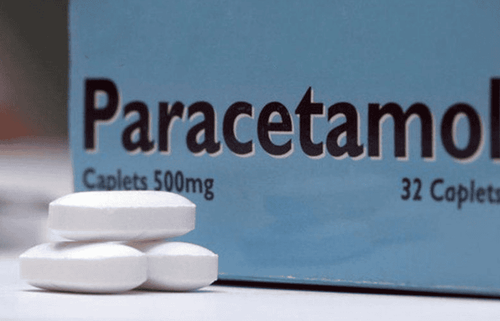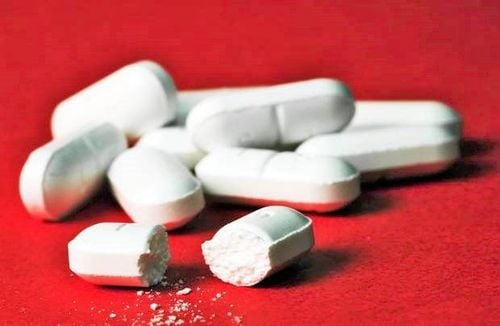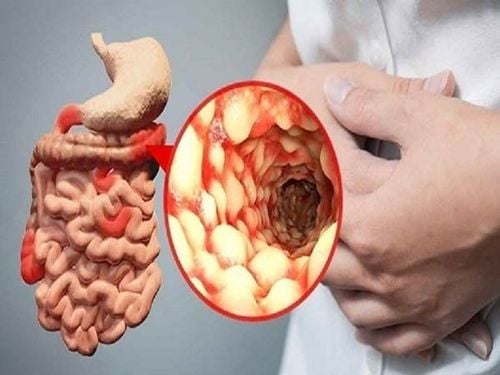This is an automatically translated article.
Post was professionally consulted with Level II Specialist Doctor Trinh Minh Chau with 21 years of experience in Pediatrics in Ho Chi Minh City, especially respiratory diseases. Dr. Chau currently has a working schedule at Tran Cao Van Clinic on Thursday mornings and at Vinmec Central Park Hospital on Saturday mornings (weekly).Many parents often abuse fever-reducing drugs when their children have a high fever. However, fever-reducing medicines can cause some side effects in children. Therefore, parents need to understand the principles when using antipyretic drugs to help children reduce fever safely and effectively.
1. Principles when using fever-reducing medicine for children
Do not arbitrarily use antipyretic drugs for children under 3 months Calculate the dose of antipyretic drugs according to the child's weight and give the correct dose to the child Read the instructions carefully before use Use the medicine within the expiry date Currently there are some commonly used antipyretic drugs on the market such as paracetamol , ibuprofen .Paracetamol :
The usual dose is 10-15mg/kg every 4 to 6 hours. For children with renal failure, it is necessary to prolong the interval between doses, at least about 8 hours. Paracetamol is quite safe for children. Currently, on the market, there are many forms of paracetamol for parents to choose from such as suppositories, oral tablets, effervescent tablets, syrups, powders and even infusions commonly used in hospitals. The suppository form is suitable when the child is vomiting too much or the child is having a high fever, having a convulsion. How to use paracetamol suppositories as follows: Refrigerate the tablet before placing, pay attention to keep the medicine in the refrigerator, not in the freezer. Just put the pill that fits all the way down the anus. The medicine should not be placed too deeply because it may reduce the effect and may damage the child's anus. The child should be left to rest for a few minutes after the medication is given. Ibuprofen:
Only give ibuprofen to children over 6 months of age. In young children, Ibuprofen often causes many side effects, especially in children with chickenpox. The usual dose is about 10mg/kg every 6-8 hours orally. Do not use ibuprofen when children have stomach ulcers, gastrointestinal bleeding, dengue fever. It is best to use it only when prescribed by a doctor.
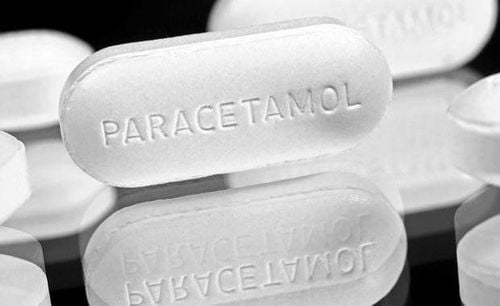
Liều Paracetamol thường dùng cho trẻ là 10- 15mg/kg mỗi 4 đến 6 giờ
2. What to do when the child has a fever?
Take off some clothes, let the child wear light, airy and loose clothes. Let the child lie in a cool, clean place. Reduce the heat in the room. Give your child plenty of water to drink. Give your child fever-reducing medicine when the temperature is 38 degrees Celsius or higher. Do not combine more than one medicine without a doctor's prescription. Wipe the baby cool with warm water and the water temperature needs to be 2 degrees lower than the baby's temperature. Use 5 wet wipes to wipe the baby: 2 towels placed on the armpits and 2 on the groin, 1 towel used to wipe the whole body. Change every 2-3 minutes. Do not use cold water or alcohol to wipe the baby. Stop wiping when the child's temperature drops below 38.5 degrees Celsius or after 30 minutes of wiping. Dry the young person and dress the child in light, airy clothes. Give your child plenty of water to drink.3. When to take the child to the hospital?
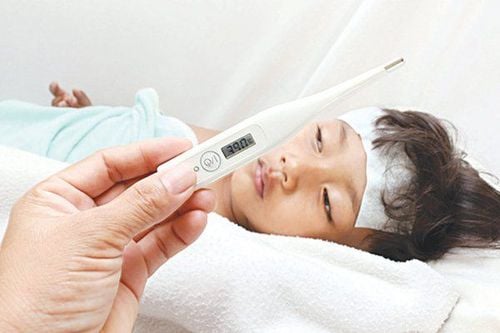
Nếu trẻ bị sốt kéo dài trên 24 giờ mà không rõ nguyên nhân thì cần được đưa đi khám ngay
For children to be healthy and develop well, it is necessary to have a nutritious diet in terms of quantity and quality balance. If children are not provided with adequate and balanced nutrients, it will lead to diseases of excess or lack of nutrients, which adversely affect the comprehensive development of children in terms of physical, mental and motor skills.
Children who do not eat properly are at risk of micro-mineral deficiency causing anorexia, growth retardation, malabsorption,... If they notice the above signs, parents should supplement their children with products. The supplement contains lysine, essential micro-minerals and vitamins such as zinc, chromium, selenium, and B vitamins to help fully meet the nutritional needs of children. At the same time, these essential vitamins also support digestion, enhance nutrient absorption, help improve anorexia, and help children eat well.
Parents can learn more:
Signs of zinc deficiency in children
Micronutrient deficiency and failure to gain weight in children
Please regularly visit Vinmec.com website and update useful information to take care of your child. Take care of the baby and the whole family.




